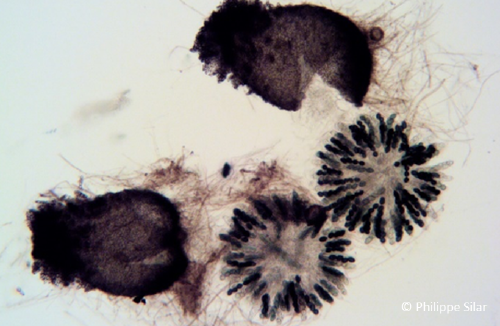Evolution of recombination suppression around the mating-type locus in Sordariales fungi

Thesis defence
16/10/2025
14:00:00
Elsa de Filippo, ESE
IDEEV - Salle Rosalind Franklin
Thesis supervised by Fanny Hartmann and Tatiana Giraud ESE .
Abstract Sex chromosomes display recombination suppression around the sex-determining locus in multiple phyla in the Eucaryotes. Recombination suppression often evolves way further than the sex-determining locus, stepwise through time, resulting in chromosome portions with different divergence levels, called evolutionary strata. Understanding how and why recombination is suppressed around sex-determining loci is key to understand the evolution of sex chromosomes. Mating-type chromosomes in fungi offer excellent models to test hypotheses about sex chromosome evolution. In Ascomycota fungi, recombination suppression and evolutionary strata seem to be associated with an extended dikaryotic phase and the production of self-fertile spores, i.e. being dikaryotic with nuclei of opposite mating types. Recombination suppression and evolutionary strata in Ascomycota have been described in two species complexes harboring those traits and belonging to the Sordariales order, Podospora anserina and Neurospora tetrasperma. During my PhD, I studied a third Sordariales lineage that includes species with a prolonged dicaryotic phase: Schizothecium tetrasporum. I investigated the species diversity within S. tetrasporum and tested the association between recombination suppression around the mating-type locus and an extended dicaryotic phase. I also studied the mutational load and the genetic and epigenetic modifications associated with recombination suppression.
Jury composition
- Pr. Joseph Schacherer, Université de Strasbourg, Rapporteur et examinateur
- Pr. Xavier Vekemans, Université de Lille, Rapporteur et examinateur
- Dr. Virginie Courtier-Orgogozo, CNRS, Université Pari Cité, Examinatrice
- Pr. Cécile Fairhead, Université Paris Saclay, Examinatrice
- Dr. Chloé Girard, CNRS, Université Paris Saclay, Examinatrice